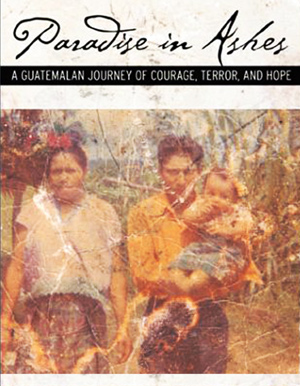

|
Paradise in Ashes:
Beatriz Manz, Professor of Geography & Ethnic Studies, UC Berkeley | ||||||

|
Beatriz Manz has written a moving chronicle of
Guatemalan villagers who have endured unspeakable
injustice, yet remarkably look to the future with
hope. This splendid book is a beautifully written
human story that is framed by the passions and
devastating consequences of the Cold War. The
narrative is a testament to the power of public
anthropology and a must-read for those concerned
about the marginalized of the south.
The violent overthrow of democracy in Guatemala
in 1954 by the army, with CIA backing, spelled
the end of FDR's "good neighbor" policy. In its
stead, Cold War ideology transformed Guatemala
into one vast death camp. No wonder President
Clinton apologized to the victims of that genocide.
Beatriz Manz, as both an anthropologist and a human
being, gives us a precise account of the high price
of a political mistake.
|
|
|
|
||
|
|
|
About… | Events… | Courses… | Meetings… | Archives… | Search… | Directions… | Feedback… |